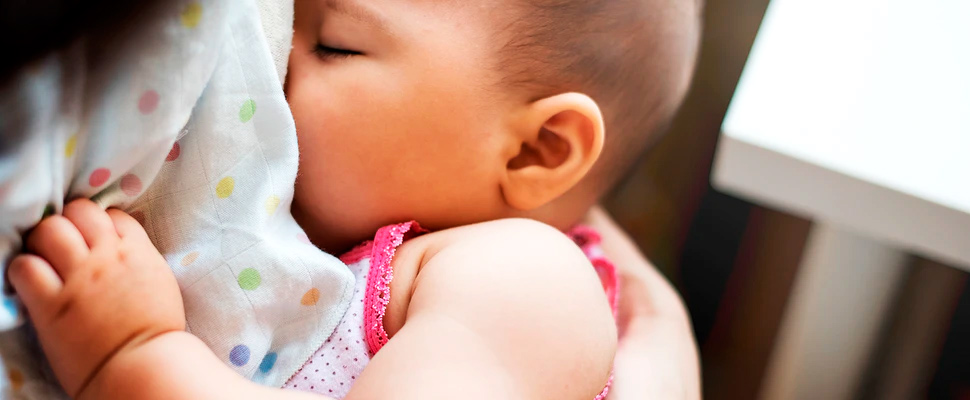Pregnancy and breastfeeding associated with lower risk of early menopause
A new study, published in JAMA Network Open, reports that women who have babies and breastfeed may be less likely to go earlier though menopause.

Mother breastfeeding her baby. / Photo: Rawpixel
LatinAmerican Post | Luisa Fernanda Baéz
Listen to this article
Leer en español: Embarazo y lactancia asociados con un menor riesgo de menopausia precoz.
As read on WKZO, women go through menopause when they stop menstruating, usually between the ages of 45 and 55. When this happens, ovaries stop the production of estrogen and progesterone causing symptoms such as joint pain, mood swings, vaginal dryness, and insomnia.
Since February is the National Heart Month and Go Red for Women, talking about menopause is really important, since it has a huge impact on women´s cardiovascular disease risk and, as experts suggest, heart disease is the number one killer of women.
Actually, according to the authors of this study, about 10% of U.S. women go through menopause before age 45, which apart from heart disease has been linked to diabetes, osteoporosis, cognitive decline, and sleep problems.
For this new study, researchers tracked 108,887 women between the ages of 25 to 42 who had not gone yet through menopause. Half of them had at least one pregnancy of 6 months and had breastfed their children for at least one month. During a follow up of 25 years, the results showed that women who had one pregnancy were 13% less likely to experience menopause before age 45 and the risk decreased with other pregnancies.
Also read: End genital mutilation now
"Both pregnancy and breastfeeding might delay menopause by temporarily halting monthly ovulation cycles to release eggs. Women are born with a set number of eggs, and depletion of this egg supply contributes to the end of menstruation and the start of menopause", said lead study author Christine Langton of the University of Massachusetts Amherst, to WKZO via email.
Also, the risk was even lower among those who breastfed exclusively, meaning the baby received breast milk only, no liquids or solid foods.
"While most women may not be thinking about menopause timing when deciding how many children they plan to have, we feel our breastfeeding findings add new insight into ways to prevent early menopause. And they align nicely with recommendations of both the American Academy of Pediatrics and World Health Organization that U.S. women exclusively feed their infants breast milk for at least six months and continue breastfeeding for up to one year", continued Mrs. Langton.
One limitation of the study, as read on Leader Post, is that most women were white and worked in the same profession, so the results might not apply to women of other racial or ethnic groups or with other types of careers.
"While there are various lifestyle and genetic factors that may contribute to the timing of menopause for individual women, it may be reassuring to some women to know that there may be health benefits later in life that are associated with pregnancy and breastfeeding" Langton concluded.




